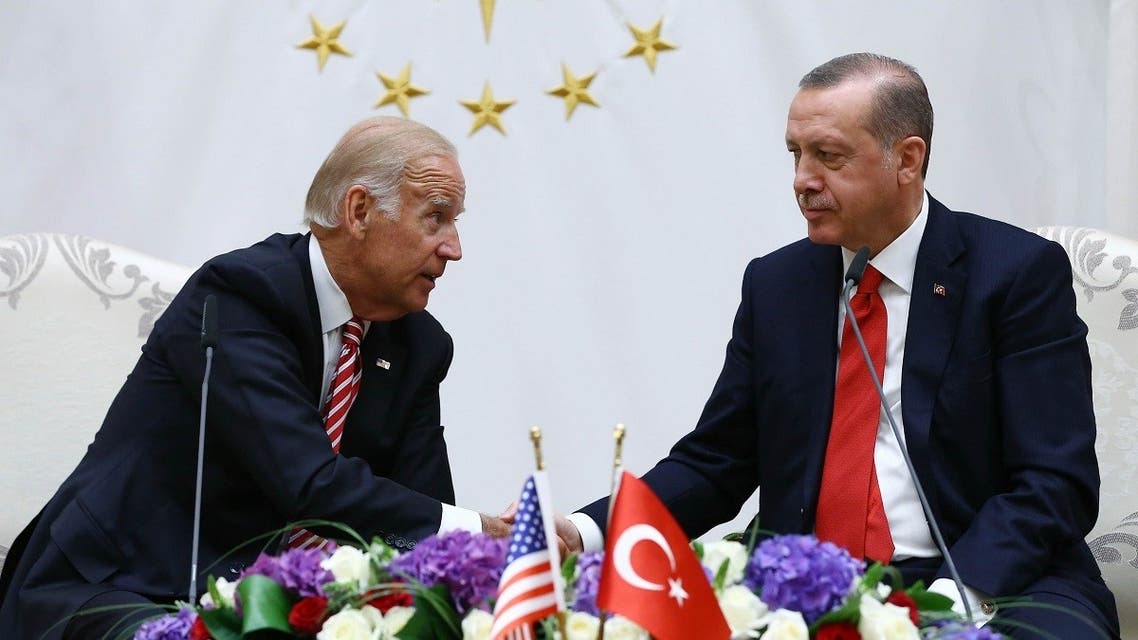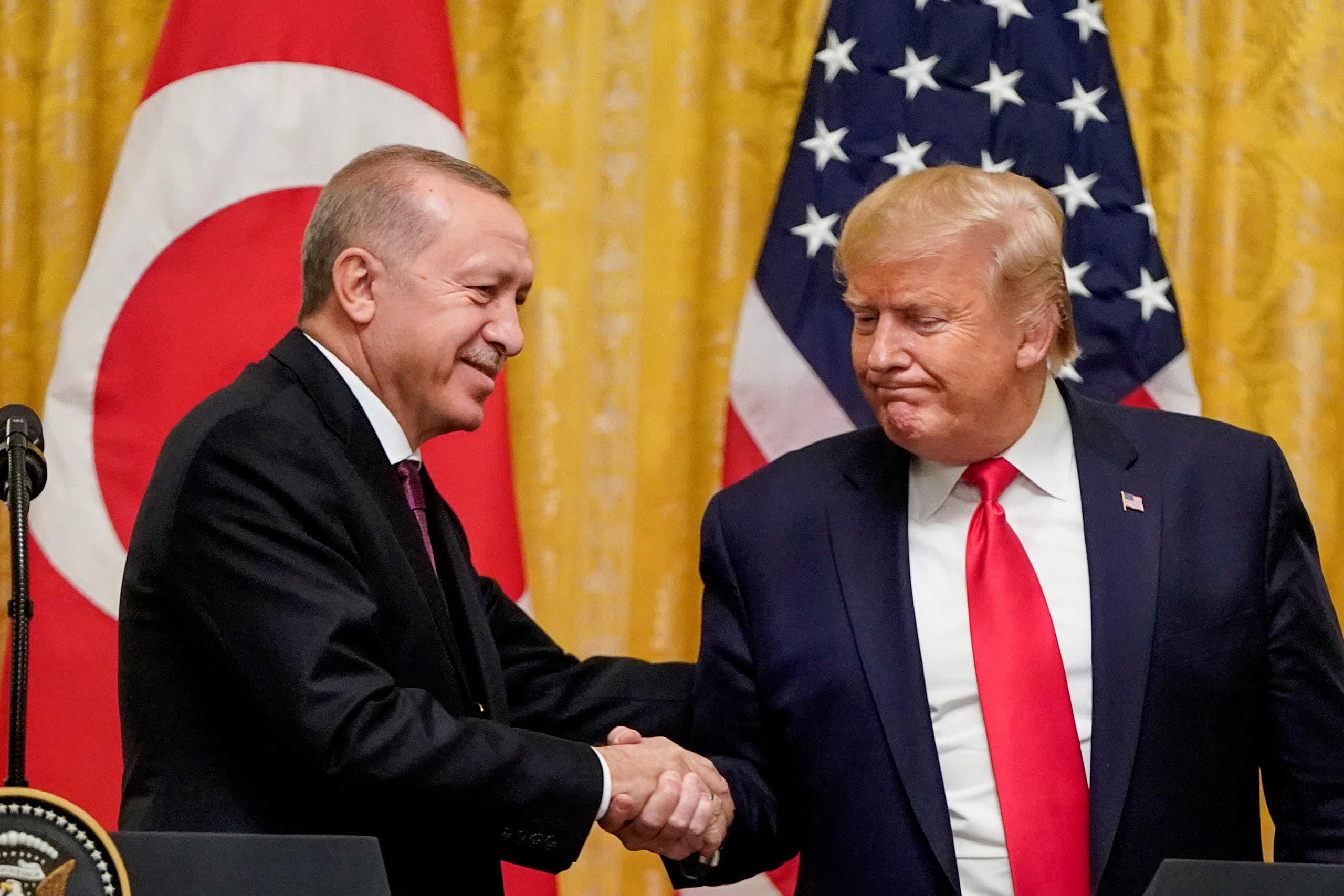
Turkish President Recep Tayyip Erdogan suddenly wants to reconnect with “nationalist allies” to reform the Turkish judiciary, and where Erdogan has made a name for himself as a strongman at home and a troublemaker in the region, he’s transformed into a domestic reformist and a global peacemaker.
So what’s changed?
But what stands behind this inexplicable bond between Trump and Erdogan? According to the New York Times, Trump’s taxes shows that, between 2015 and 2018, the US president made $2.6 million in profit from his two Trump Towers in Istanbul. Trump “would interfere in the regular government process to do something for a foreign leader… in anticipation of another favor from that person down the road,” Trump’s former National Security Adviser John Bolton told the paper.
A little bit down the road, Erdogan’s men met with National Security Adviser-designate Michael Flynn and offered him $15 million for an operation that included drugging and expatriating to Turkey Erdogan’s former ally, Islamic Fethullah Gulen, who lives in America. Former CIA Director James Woolsey was also at the meeting and would later tell the public about the meeting and break ranks with the Trump team.
While kidnapping Gulen proved to be a step too far, Trump could offer Erdogan other favors. Ever since America and the UN imposed sanctions on Iran to dissuade Tehran from making nuclear weapons, a Turkish network that allegedly included Erdogan’s son-in-law Berat Albayrak and Turkish businessman and money launderer Reza Zarrab engaged in illicit trade that violated these sanctions, mainly through Turkey’s state-owned Halk Bank.
Enjoying a luxurious life, Zarrab was taking his family to Disneyland in March 2016. When he landed in Florida, US authorities arrested him for trial, prompting Erdogan to ask then Vice President Biden, who was visiting Turkey, to release Zarrab and fire the prosecutor on his case Preet Bharara, in the name of the Turkish-American alliance. Biden responded that America’s executive branch had no authority over the judiciary.
When Trump became president, he asked his lawyer Rudy Giuliani to handle Zarrab’s case and fired Bharara. But the case proceeded anyway, and Zarrab took a plea deal that reduced his incarceration to house arrest. In response, and perhaps fearing that Zarrab’s confession might lead to Erdogan and his inner circle, Ankara confiscated the assets of the Zarrab family in Turkey.

According to Bloomberg News, in 2017, Trump asked his then Secretary of State Rex Tillerson to persuade the US Justice Department to drop the case against Zarrab. But with the case proceeding, Trump instructed his successive Attorneys General, Matthew Whitaker and Bill Barr, not to grant prosecutors permission to go after Halk Bank. Meanwhile, while Trump didn’t spare Erdogan the wrath of the US judiciary, the US president offered his Turkish counterpart a consolation prize: In the fall of 2019, Trump ordered US troops deployed alongside Kurdish militias in northwest Syria to withdraw. The Turkish army immediately swarmed America’s Kurdish allies.
Trump’s favoritism toward Erdogan seems to have fueled the Turkish president’s bullish regional behavior. Erdogan embarked on wars and proxy wars over a territory that stretched from Armenia and Syria in the east, to Libya in the west. Erdogan provoked Cyprus and came close to a military clash with Greece. Meanwhile, he spited the US military by buying Russia’s S400 air defense system. This time, Trump could not shield Erdogan, and the military decided to pull the plug on Turkey’s participation in the production and ownership of the top notch F-35 fighter jets.
Read more:
King Salman, Turkey’s Erdogan discuss G20 summit and bilateral relations
Turkey’s behavior ‘widening its separation’ from Europe: EU foreign policy chief
Sanctions may be expected if Turkey continues eastern Med provocations: Germany
With Biden coming to the White House, Erdogan realized that his free rein has come to an end. In January, Biden told the New York Times that Erdogan was an autocrat, and that America should support Turkish opposition leaders who can topple him in election. Biden recently told the New York Times that Erdogan had already been “blown out,” losing mayoral and municipal elections in Istanbul and throughout the country.
With Biden set to take office in January, Erdogan seems to be hunkering down in anticipation, saying that he intends to reform the Turkish judiciary, while Turkish parliament passed a law “to repatriate Turkish energy and mining companies established abroad.” A Turkish Energy Ministry official told Bloomberg News that repatriation “aimed to guard against the impact of potential [US] sanctions.”
The US election have changed US presidents, but it has also changed Erdogan’s behavior. The Turkish president seems to realize that, with Trump gone, so are his days of freewheeling. Erdogan will have to lay low until he can “take the measurements” of the Biden administration, and will act accordingly afterward. Judging by Erdogan’s steps so far, he looks scared and is preparing for the worst.



